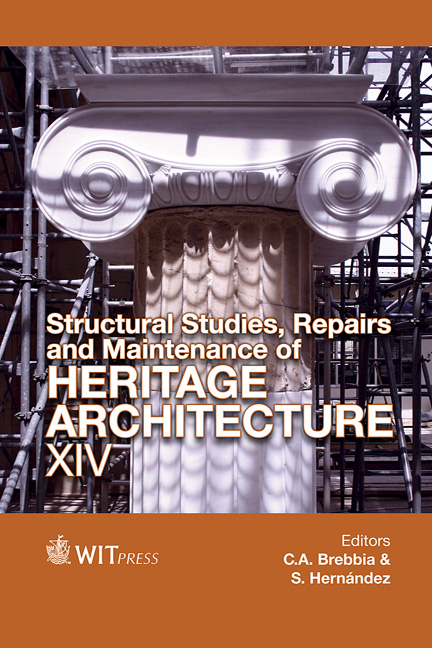Portuguese Castles: The Territory And The Community
Price
Free (open access)
Transaction
Volume
153
Pages
13
Page Range
827 - 839
Published
2015
Size
1,394 kb
Paper DOI
10.2495/STR150681
Copyright
WIT Press
Author(s)
J. Faria
Abstract
This paper intended to analyse the relation between the heritage interventions on Portuguese castles, from 2001 onwards, and the context in which they are integrated, namely on the impact of these heritage interventions on local trade and the participation of the local communities in the decision-making process.
Heritage is no longer a process of construction of identity(ies), having become instead a series of artefacts and cultural practices categorized and managed by a specific circle of experts. This situation led to a progressive creation of new categories tending to accommodate the multiple meanings of the heritage concept to different non-western cultures; a phenomenon that led into a crisis of accumulation of heritage that poses considerable challenges in terms of a nation’s financial management. In addition to this, there was a large increase in the number of visits to heritage sites since the second half of the twentieth century, a fact that was expected to generate economic benefits to the region or the nation’s development.
The results achieved by the study showed that in spite of the different contexts there were no significant differences regarding the concept, programme and use of the heritage interventions, reflected in the poor adequacy to the context in which they are integrated, especially concerning the availability of financial means to secure their maintenance and the anticipated beneficial economic impact. To solve the problems identified above, higher involvement of the local communities could be an important step forward towards sustainable maintenance.
Keywords
heritage, castles, territory, community




